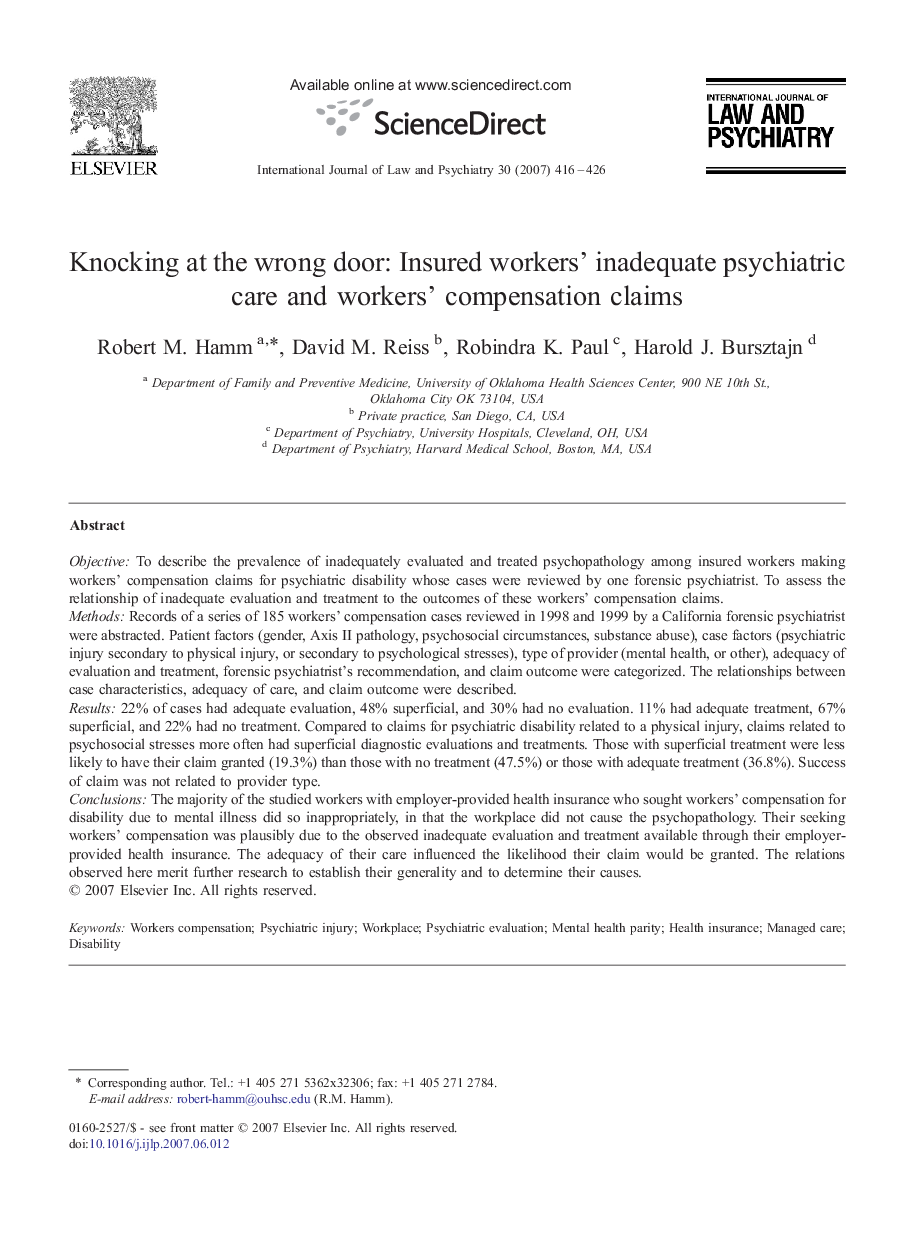| Article ID | Journal | Published Year | Pages | File Type |
|---|---|---|---|---|
| 101236 | International Journal of Law and Psychiatry | 2007 | 11 Pages |
ObjectiveTo describe the prevalence of inadequately evaluated and treated psychopathology among insured workers making workers' compensation claims for psychiatric disability whose cases were reviewed by one forensic psychiatrist. To assess the relationship of inadequate evaluation and treatment to the outcomes of these workers' compensation claims.MethodsRecords of a series of 185 workers' compensation cases reviewed in 1998 and 1999 by a California forensic psychiatrist were abstracted. Patient factors (gender, Axis II pathology, psychosocial circumstances, substance abuse), case factors (psychiatric injury secondary to physical injury, or secondary to psychological stresses), type of provider (mental health, or other), adequacy of evaluation and treatment, forensic psychiatrist's recommendation, and claim outcome were categorized. The relationships between case characteristics, adequacy of care, and claim outcome were described.Results22% of cases had adequate evaluation, 48% superficial, and 30% had no evaluation. 11% had adequate treatment, 67% superficial, and 22% had no treatment. Compared to claims for psychiatric disability related to a physical injury, claims related to psychosocial stresses more often had superficial diagnostic evaluations and treatments. Those with superficial treatment were less likely to have their claim granted (19.3%) than those with no treatment (47.5%) or those with adequate treatment (36.8%). Success of claim was not related to provider type.ConclusionsThe majority of the studied workers with employer-provided health insurance who sought workers' compensation for disability due to mental illness did so inappropriately, in that the workplace did not cause the psychopathology. Their seeking workers' compensation was plausibly due to the observed inadequate evaluation and treatment available through their employer-provided health insurance. The adequacy of their care influenced the likelihood their claim would be granted. The relations observed here merit further research to establish their generality and to determine their causes.
